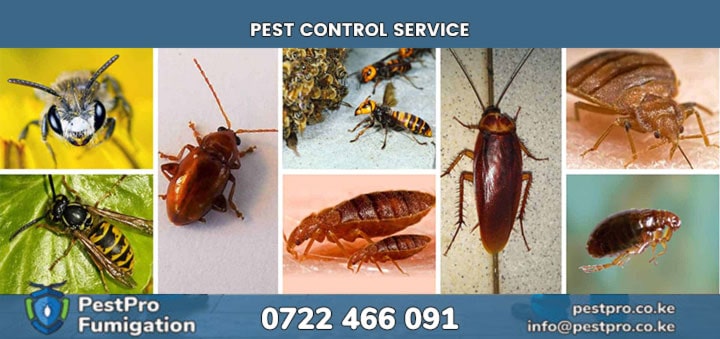Seasonal Home Maintenance to Keep Pests Out Year-Round
Maintaining a pest-free home requires proactive effort throughout the year. Pests like rodents, insects, and other critters seek shelter, food, and water, making your home an attractive target if not properly secured. By implementing seasonal home maintenance strategies, you can significantly reduce the risk of infestations. This article outlines practical steps for each season to keep pests at bay, ensuring your home remains a sanctuary.
Spring: Sealing Entry Points and Clearing Clutter
Spring is a time of renewal, but it’s also when pests become active. Start by inspecting your home’s exterior for cracks, gaps, or holes. Check around windows, doors, vents, and where utility lines enter. Use caulk or weatherstripping to seal these entry points. Pay special attention to the foundation, as ants and rodents can exploit even tiny openings.
Inside, declutter storage areas like basements and attics. Pests thrive in cluttered spaces where they can hide. Store items in sealed plastic containers rather than cardboard boxes, which attract rodents and insects. Clean out gutters to prevent water accumulation, as standing water can draw mosquitoes and other pests.
Finally, trim trees and shrubs away from your home. Overhanging branches provide pathways for ants, squirrels, and roof rats. Keep a gap of at least one foot between vegetation and your home’s exterior.
Did You Know? A single mouse can fit through a hole as small as a dime, and ants can enter through gaps as narrow as 1/16th of an inch. Regular inspections are key to catching these vulnerabilities early.
Summer: Managing Outdoor Areas and Food Sources
Summer’s warmth brings pests out in droves, particularly mosquitoes, flies, and wasps. Begin by maintaining your yard. Mow the lawn regularly and remove weeds, as tall grass and overgrown plants provide hiding spots for pests. Clear away yard debris like piles of leaves or wood, which can harbor ticks and rodents.
Ensure trash cans have tight-fitting lids and are kept away from the home’s exterior. Clean them periodically to eliminate food residue that attracts flies and ants. If you have a compost pile, keep it far from the house and turn it regularly to deter pests.
Inside, store food in airtight containers and clean up spills immediately. Pay attention to pet food, which is a magnet for ants and rodents—feed pets in designated areas and remove uneaten food promptly. Check window screens for tears and repair them to block insects.
For outdoor activities, eliminate standing water in birdbaths, flowerpots, or clogged drains to prevent mosquito breeding. Consider using natural repellents like citronella plants or essential oil-based sprays around patios.
Pro Tip: Mosquitoes can breed in as little as a teaspoon of standing water. Check your property weekly during summer to eliminate potential breeding sites.
Fall: Preparing for Winter Invaders
As temperatures drop, pests like rodents, spiders, and cockroaches seek warmth indoors. Fall is the time to fortify your home. Inspect and repair any damaged weatherstripping around doors and windows. Install door sweeps to block gaps at the bottom of exterior doors, a common entry point for mice.
Clean chimneys and fireplaces, as these can be entryways for squirrels and birds. Cap chimneys with a mesh screen to prevent nesting. Inside, vacuum thoroughly, especially in corners and under furniture, to remove crumbs and spider webs that attract pests.
Store firewood at least 20 feet from your home and elevate it off the ground to discourage termites and rodents. Before bringing firewood indoors, inspect it for insects. Additionally, check attics and crawlspaces for signs of pest activity, such as droppings or chewed materials, and address issues promptly.
Interesting Fact: Rodents can chew through materials like wood, plastic, and even soft metals to gain entry. Using steel wool to fill small gaps can be an effective deterrent.
Winter: Monitoring and Maintaining Indoor Defenses
Winter may seem like a quiet time for pests, but many, like mice and pantry pests, remain active indoors. Keep your home warm and dry, as damp environments attract silverfish and mold-loving insects. Use a dehumidifier in basements or crawlspaces if necessary.
Regularly inspect stored food in pantries for signs of pantry moths or beetles. Discard infested items and store grains, cereals, and nuts in glass or metal containers. Clean pantry shelves to remove crumbs and spilled food.
Check for signs of rodents, such as gnaw marks or droppings, especially in areas like garages or near heating systems. Set traps if needed, but avoid using poison indoors, as it can lead to pests dying in hard-to-reach areas, causing odors. Keep your home tidy by vacuuming and dusting regularly to eliminate pest attractants.
Finally, maintain your heating system to prevent pests from nesting in ducts. Replace filters as recommended and ensure vents are screened.
Quick Tip: Placing bay leaves in pantry corners can naturally repel pantry pests like weevils and moths due to their strong scent.
Year-Round Vigilance: A Consistent Approach
Regardless of the season, some maintenance tasks should be ongoing. Regularly inspect your home for signs of pest activity, such as droppings, nests, or unusual odors. Keep kitchen surfaces clean and take out the trash frequently to avoid attracting pests. Store seasonal items, like holiday decorations, in sealed containers to prevent pests from nesting.
Consider professional pest control services for routine inspections, especially if you live in an area prone to specific pests like termites or bed bugs. Eco-friendly options, such as integrated pest management, focus on prevention and minimal chemical use, aligning with sustainable home maintenance practices.
By staying proactive with these seasonal tasks, you can protect your home from pests year-round, saving time, money, and stress. A well-maintained home is your best defense against unwanted invaders.
Final Note: Consistent maintenance can reduce pest-related repair costs by up to 50%, according to pest control industry estimates. Invest time now to avoid costly infestations later.
More pest Control Services
PestPro Facebook Page
Medium
